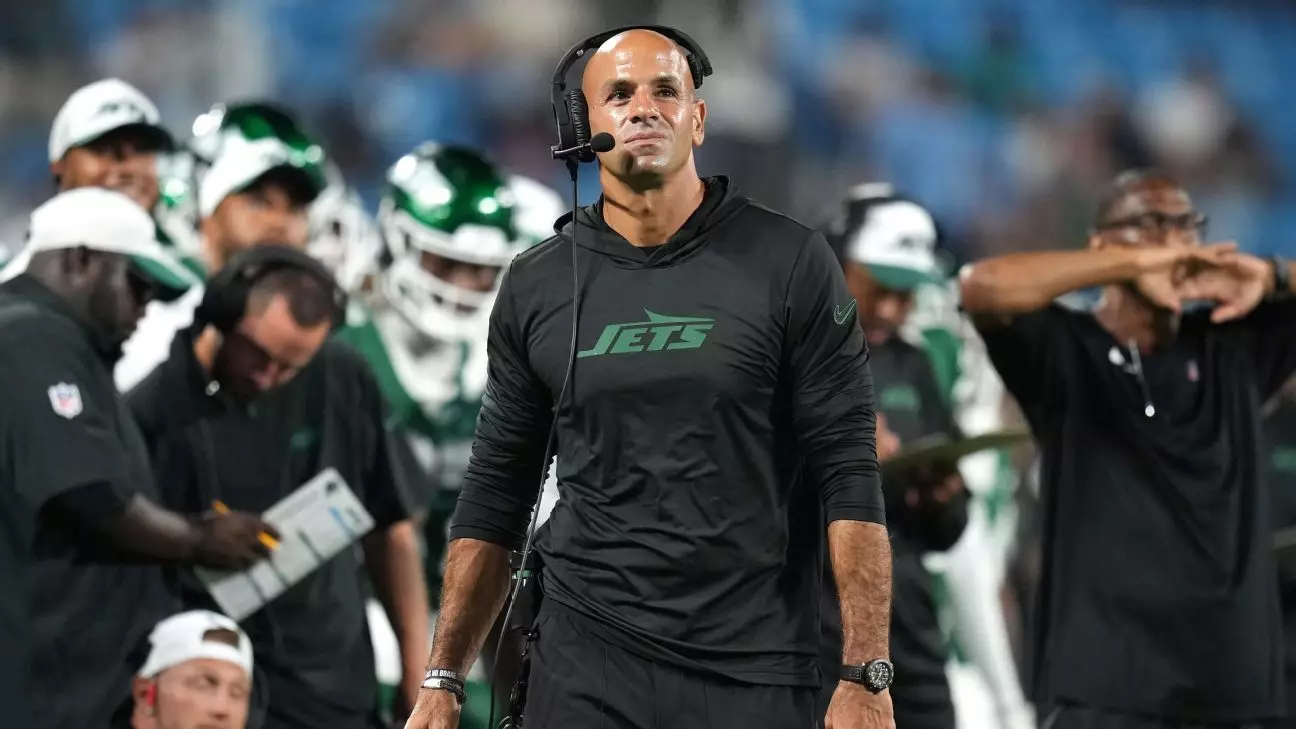In a surprising yet revealing turn of events, the New York Jets have decided to release head coach Robert Saleh after a disappointing start to the 2024 season. This significant move, announced by owner Woody Johnson, comes as the team grapples with a 2-3 record, a stark contrast to the high hopes and expectations that surrounded them at the season’s inception. Saleh, who had been at the helm since 2021, faced unrelenting pressure following a lackluster previous season that culminated in a 7-10 finish. Johnson’s statement regarding Saleh’s termination underscored the frustration felt within the organization, emphasizing a divergence from the team’s aspirations.
It was clear from the outset that the 2024 season promised new life for the franchise, particularly with the return of veteran quarterback Aaron Rodgers, who was expected to rejuvenate a previously stagnant offense. Instead, Saleh’s firing highlights not just a sense of urgency but a response to the growing dissatisfaction with the team’s inability to translate talent into victories.
Moving forward, defensive coordinator Jeff Ulbrich has stepped in as the interim head coach for the remainder of the season. Johnson expressed confidence in Ulbrich’s ability to lead, citing his esteemed reputation within the locker room. “He is a tough coach who has the respect of the coaches and players on this team,” Johnson remarked, indicating a belief that Ulbrich can unlock the potential of a roster laden with talent.
This decision carries significant implications for Ulbrich, who must navigate the challenges of ensuring team cohesion and motivation while instilling a sense of urgency in a season that has already seen its share of turmoil. The interim tag comes with pressure; he will need to leverage the strengths of this Jets team swiftly if they hope to make a late-season push.
Saleh’s coaching era was marred by inconsistent performance and the heartbreaking instability that plagued the quarterback position during his tenure. Over the course of four seasons, six different quarterbacks took the field under his leadership. While his teams displayed notable defensive prowess, the offense often faltered due to inadequate quarterback play. This culminated in the selection of Zach Wilson in the 2021 draft, a choice that, albeit ambitious, quickly revealed its limitations.
Wilson’s time as a starter became emblematic of Saleh’s challenges, as the young quarterback’s struggles led to a cycle of replacements. The acquisition of Rodgers was seen as the ultimate solution; however, relying on a player recovering from a severe injury raised questions about the sustainability of that hope. Adding to the complexity, Saleh’s relationship with Rodgers was scrutinized, yet both men maintained a facade of camaraderie, striving to quell any whispers of discord.
As the Jets navigate the aftermath of Saleh’s departure, the team must reflect on the broader implications for their future. It remains to be seen whether the franchise will seek a new direction conceptually with the next head coach or retain some of the groundwork laid in recent years. This decision may hinge on how Ulbrich fairs over the coming weeks.
For Jets fans, the firing of Saleh serves as a bitter reminder of the volatility entrenched within professional sports management, even for franchises rife with promise. With high stakes ahead, the Jets’ organizational focus will now turn towards restoring the franchise’s competitive edge, ensuring the players feel empowered under Ulbrich’s guidance.
Robert Saleh’s firing underscores the delicate balance of expectation and result in the NFL. As the Jets embark on this transitional journey, they face the daunting task of reconciling ambition with performance, striving to achieve the elusive success that fans are desperate for. The path forward will be laden with challenges, yet offers a glimmer of hope for a franchise in search of its rightful place in the football hierarchy.

Leave a Reply